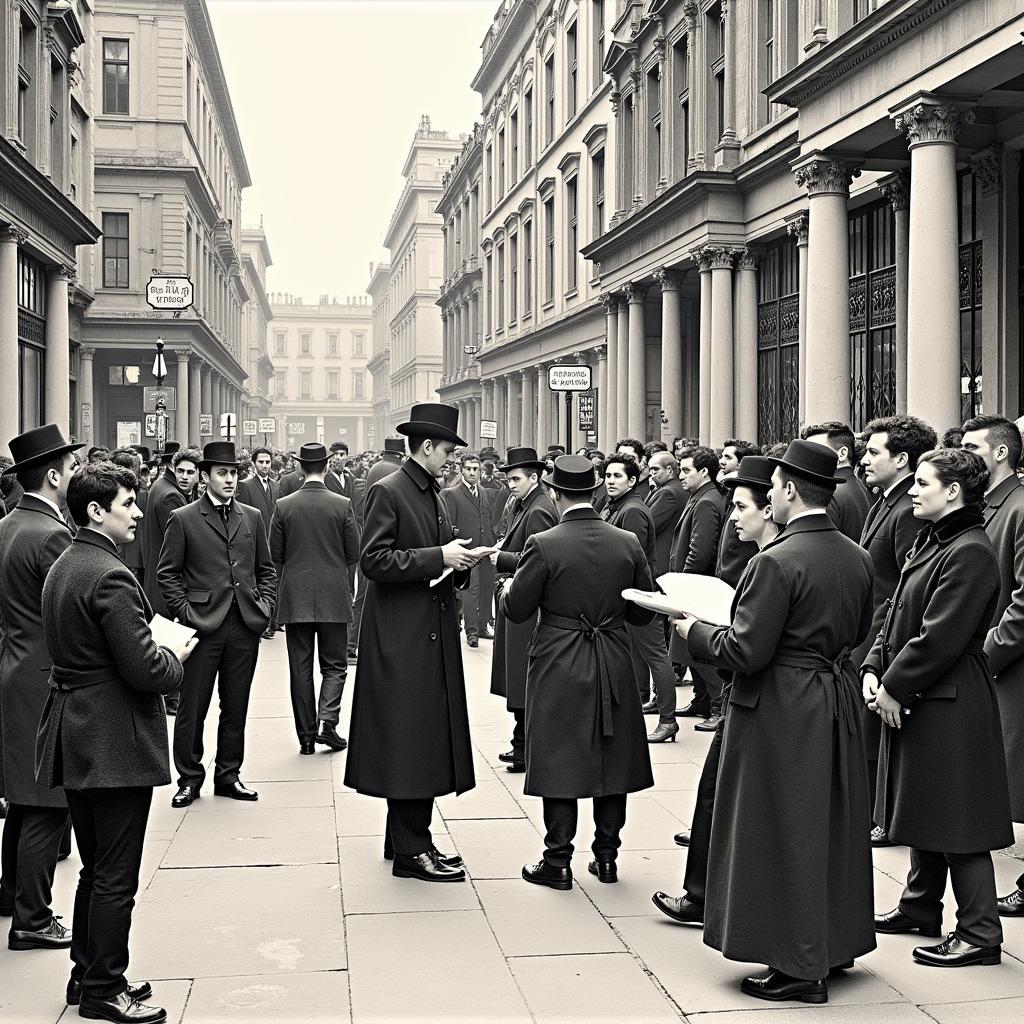The Fabian Society, founded in 1884, emerged during a period of significant social and political change in Victorian England. Understanding how this influential socialist organization reflected, challenged, and ultimately transformed Victorian ideals is crucial to grasping its impact on the development of British society. This article will explore the complex relationship between the Fabian Society and the dominant ideologies of the Victorian era.
The Victorian Context: A Backdrop of Contradictions
Victorian England was a society marked by both progress and deep inequalities. The Industrial Revolution brought unprecedented economic growth, but also created a vast chasm between the wealthy elite and the impoverished working class. Victorian ideals often centered on notions of progress, morality, duty, and social reform, yet these values were frequently applied selectively, reinforcing existing power structures. This created a fertile ground for the emergence of groups like the Fabian Society, who sought to address these societal contradictions.
Fabianism and the Victorian Ideal of Progress
The Fabians embraced the Victorian belief in progress, but redefined it in terms of gradual, evolutionary social change rather than revolutionary upheaval. Unlike Marxist revolutionaries, they advocated for a peaceful transition to socialism through democratic means, reflecting the Victorian emphasis on order and stability. This gradualist approach, often referred to as “permeation,” aimed to influence existing institutions, such as political parties and trade unions, from within.
Challenging Victorian Morality: The Fabian View on Social Issues
While Victorians often espoused a strict moral code, the Fabians challenged many conventional social norms. They advocated for greater equality between men and women, supporting women’s suffrage and challenging traditional gender roles. They also championed issues like poverty relief, education reform, and improved working conditions, reflecting a commitment to social justice that often clashed with the laissez-faire economics prevalent during the era.
The Fabian Society and the Victorian Notion of Duty
The concept of duty was central to Victorian society, and the Fabians interpreted this as a social responsibility to improve the lives of others. They believed that everyone had a duty to contribute to the betterment of society, and saw their work as a form of civic engagement. This commitment to social duty aligned with certain aspects of Victorian philanthropy, while simultaneously challenging the underlying inequalities that created the need for such charitable endeavors.
 Fabian Society's Social Reform Efforts in Victorian England
Fabian Society's Social Reform Efforts in Victorian England
How Did the Fabians Differ from Other Victorian Reformers?
While the Fabians shared some common ground with other Victorian reformers, their approach differed significantly. Unlike charitable organizations that focused on alleviating immediate suffering, the Fabians sought to address the root causes of poverty and inequality through systematic social reform. They believed in the power of collective action and the importance of government intervention in regulating the economy and providing social services. This differentiated them from more individualistic approaches to social reform.
The Legacy of the Fabian Society in Post-Victorian Britain
The Fabian Society’s influence extended far beyond the Victorian era. Their ideas played a significant role in the development of the Labour Party and the growth of the welfare state in Britain. Their emphasis on gradual, democratic change left a lasting impact on British politics and social policy, shaping the trajectory of the nation well into the 20th century and beyond.
Conclusion
The Fabian Society’s relationship with Victorian ideals was complex and multifaceted. They embraced certain aspects of Victorian thought, such as the belief in progress and the importance of duty, while simultaneously challenging others, like traditional social hierarchies and laissez-faire economics. By advocating for gradual, democratic social change, the Fabians helped to transform Victorian ideals and pave the way for a more equitable and just society. Their influence continues to resonate in contemporary political and social debates, making their story a vital part of understanding the evolution of modern Britain.
FAQ
- What was the main goal of the Fabian Society? To achieve socialism through gradual and democratic means.
- How did the Fabians differ from Marxists? They favored gradual reform over revolution.
- What were some key Victorian ideals? Progress, morality, duty, and social reform.
- How Did The Fabian Society Reflect Victorian Ideals? They embraced the concept of progress and duty, but reinterpreted them in the context of social reform.
- What is the legacy of the Fabian Society? They influenced the development of the Labour Party and the British welfare state.
- What were some of the social issues the Fabians championed? Women’s suffrage, poverty relief, and education reform.
- How did the Fabians view the role of government? They believed in government intervention to regulate the economy and provide social services.
Need More Help?
For further assistance and information, please contact us:
Phone: 02043854663
Email: [email protected]
Address: Khu 34, Bac Giang, 260000, Vietnam
Our customer service team is available 24/7. We also encourage you to explore other related articles on our website to learn more about the Fabian Society and related topics.